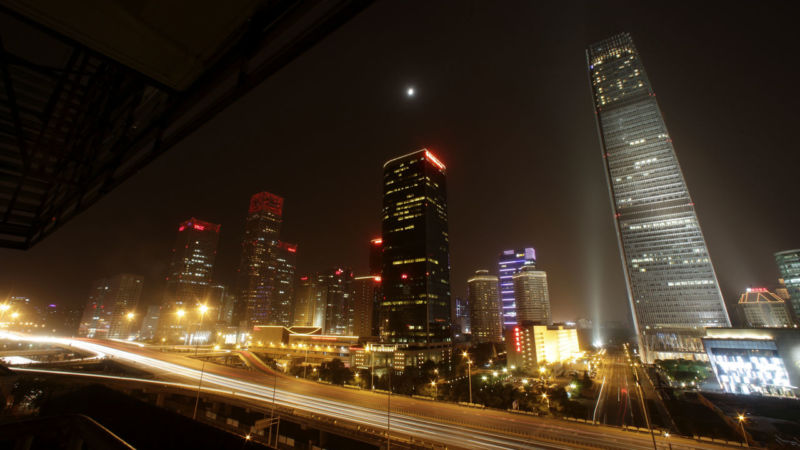China Customs changed its Authorized Economic Operator (AEO) classification system last year. In general, the revised regulations simplify processes and make it easier for new companies entering China to qualify for simplified customs procedures. The new rules also bring China’s system into closer alignment with AEO legislations outlined in the WCO framework leading to greater mutual recognition in the future. This article outlines the new regulations and changes versus the previous system.
On October 8th 2014, the General Administration of China Customs (GACC) formulated interim measures for enterprise credit management (decree No. 225 of GACC, referred to as IMECM)[1], which came into force on December 1st, 2014. In summary, the decree states that Customs will determine the status of an enterprise, based on those that act in good faith and in compliance with laws. Alternatively, Customs will take appropriate measures on those that lose credit and are non-compliant with the laws.
IMECM is a mechanism to determine the status of an enterprise from three broad categories:
- Certified enterprise – A certified enterprise is an Authorized Economic Operator (AEO) recognized by Customs administrations of China. There are two levels of Certified Enterprises – Advanced Certified Enterprise (ACE), which is equivalent to the previous AA level, and General Certified Enterprise (GCE), which is equivalent to the previous A level.
- General-credit enterprise which is equivalent to the previous B level.
- An enterprise registered for the first time;
- A certified enterprise that is no longer in compliance with the requirements of Article 9 of the decree and does not fall in any of the circumstances set out in Article 10 of the decree; or
- An enterprise that has been identified as discredited for one full year and no longer falls in any of the circumstances set out in Article 10 of the decree
- Discredited enterprise –which contains the previous C & D level. The following management principles and measures shall apply to discredited enterprises:
- A high inspection rate of import and export goods;
- Focused review of documents for import and export goods;
- Heightened supervision over processing trade; and
- Other management principles and measures prescribed by the General Administration of Customs
The criteria for certifying enterprises by Customs are classified underACE and GCE. The process for determining the enterprise classification is based on impartial evaluation of areas of the enterprises operations, management, internal controls, compliance and other objective indicators indicative of the credit status of the enterprise. Certified enterprises will enjoy the clearance facilitation granted by customs administration, while the discredited enterprise will be subject to stricter customs controls.
IMECM embraces the advanced philosophy of standards of the AEO[2] legislations advocated in the WCO framework, to secure and facilitate global trade. IMECM specifically states that certified enterprises that are AEO of China Customs are eligible for the preferential treatment and clearance facilitation granted by China Customs and its foreign counterparts with mutual recognition.
In comparison to the previous enterprise management system, IMECM canceled enterprise size, trade value, business life and other requirements. Classification is determined based on internal controls (including IT systems), financial conditions, compliance, trade security and “bonus criteria”. The criterion for ACE contains 18 categories and 32 items; for GCE contains 18 categories and 29 items. There are scoring rules for the criteria and before the application is submitted, the criteria states an enterprise must conduct a self-assessment in advance to rectify any practice that fails to meet the criteria. Also, IMECM simplified the procedure for certification of enterprises, for ACE certification. Authority has been delegated to regional Customs and the processing time shortened to less than 90 days. This will help those who have a comprehensive management mechanism, and reputable enterprises to quickly enter the Chinese market and enjoy the benefit as a certified enterprise.
IMECM further strengthened the supervision of certified enterprises. It will conduct recertification every 3 years for ACE and conduct irregular recertification for GCE. Third-party certification agencies have been authorized to get a more comprehensive understanding of the production, operation and the integrity of enterprises. If the enterprise fails to pass the recertification, they will downgrade to GCE and forbidden to apply for the status of ACE for one year
To support the enterprises on the IMECM, China Customs established a business credit information management platform to collect information to reflect import and export credit status. On the condition that state secrets, trade secrets and personal privacy are protected, the Customs administration publicly discloses 4 kinds of credit information of an enterprise:
- Business registration filed with Customs
- Corporate credit status
- Corporate administrative sanctions information
- Other information.
The term of public disclosure of administrative sanctions is five years. This public disclosure is expected to further strengthen corporate integrity due to higher scrutiny.
GCEs will receive a relatively low inspection rate for import and export shipments with simplified examination of documentation. In addition to the management principles for GCE and ACE companies can go through the inspection and release formalities before the commodity classification, customs valuation and origin of import and export shipments are determined.
The enterprise credit should become more valuable over time. While mutual recognition of China’s enterprise credit system is currently limited, the new regulations bring it into alignment with WCO guidance. This supports China’s initiatives and activities in actively working with the other AEO countries for mutual recognition and associated benefits.
By promoting corporate integrity, simplifying certification procedures, and creating greater benefits internationally, the IMECM has significant advantages over the preceding enterprise program by driving significant efficiencies in customs clearance for companies that have implemented robust systems and processes in their import/export operations.
Thomson Reuters ONESOURCE Global Trade is localized for the China market focusing on China local regulations of trade compliance and supports companies in meeting their compliance requirements to achieve AEO certification.
How can Thomson Reuters help you with import/export?
To learn more about Thomson Reuters solutions for import/export, please visit our global trade and customs page.
References:
[1]Decree No. 225 – http://english.customs.gov.cn/Uploads/file/20150409/20150409095223_1104.pdfGeneral Administration of Customs of China (GACC)
Interim Measures of Customs Administration of the People’s Republic of China for. Enterprise Credit Management (IMECM)
[2] “Authorized Economic Operator” (“AEO”) is an enterprise involved in the international movement of goods in whatever function, conforming to the conditions set out herein and the Criteria of Certified Enterprises of the Customs Administration, and certified by the Customs administration





